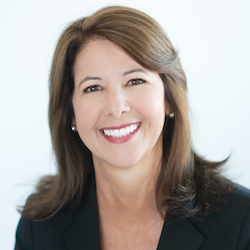
With the “grips of the pandemic” easing considerably over the past few months, and a 93% vaccination rate among its residents, Capital Senior Living President and CEO Kimberly Lody said signs of recovery are evident in the senior living business.
Capital closed the first quarter with a redefined portfolio of 60 owned communities, marking the completion of its community transition strategy. This effort included completing the transition of legal ownership of three communities back to Fannie Mae.
In April, Capital amended and extended an existing management agreement with Healthpeak Properties for the remaining four properties Capital manages on behalf of the real estate investment trust.
“We are at an important inflection point for our business,” Lody said. “We have redefined our portfolio, developed and implemented differentiated resident programming and strengthened the operating performance of our communities, all of which position us to successfully serve the fast-growing, middle market senior population and begin the growth-focused stage of our strategic plan.”
Occupancy
Occupancy was at 75.5% for the first quarter, a decrease of 820 basis points (8.2%) compared with the first quarter of 2020, and it was 76.9% for April, indicating the post-COVID recovery has begun, executives said. Occupancy stabilized in the first quarter and increased 170 basis points (1.7%) from February to April.
Leads and tours continue to improve, indicating that demand for senior housing and services is beginning to rebound, executives said.
Actions taken to improve on the company’s key metrics — including focusing on lead quality, improving reputation score and increasing community visibility — are contributing to a positive momentum, said Tiffany Dutton, senior vice president of finance and accounting.
Chief Operating Officer Brandon Ribar said that rate integrity continues as a primary goal for the company. In the first quarter, Capital experienced a 1.5% average rate decline from the fourth quarter 2020 due to a move-in concession offering in December, January and February to increase volume after occupancy slips due to COVID-19. Rates increased 2% month-over-month in March, which also saw an increased move-in rate.
Move-ins increased 33% from the fourth quarter 2020 to the first quarter 2021, and move-ins in March and April were at their highest levels in two years, Lody said. March and April also saw the lowest number of move-outs since May 2020.
Ribar said he is optimistic that Capital will continue to see improvement in occupancy trends as the company moves into a post-COVID operating environment.
“We are pleased with recent occupancy trends in our portfolio and remain optimistic about the outlook of the post-pandemic recovery,” Lody said.
COVID-19
Capital said it has completed all three rounds of COVID-19 vaccinations to all of its communities, achieving a 93% vaccination rate among residents. The operator was able to decrease its COVID-19 cases across the portfolio to almost zero, according to executives.
The company received $8.7 million in grants from the Phase 3 distribution of Coronavirus Aid, Relief, and Economic Security (CARES) Act Provider Relief Funds in January to cover healthcare-related expenses or lost revenues attributed to the pandemic. Dutton said that Capital intends to apply for additional funding as soon as it becomes available.
Continuing community operating expenses increased 13% in the first quarter compared with the first quarter of 2020. Labor, employee incentive and retention bonus programs, as well as utility expenses, were slightly offset by decreases in food, legal and professional expenses, as well as advertising and promotion costs, compared with the first quarter of 2020. Same-community net operating income decreased 53% in the first quarter, compared with the first quarter of 2020.
Labor costs declined 2.5% sequentially and 1.2% from the first quarter of 2020. Capital said it experienced a first quarter, one-time $100,000 increase in labor costs due to the winter storm that swept through several states in February.
‘SING’ strategy
Lody said the company has made much progress on its three-year “SING” strategy to stabilize, invest in, nurture and grow by redefining the portfolio and investing in its people, communities, processes and resident programs. Two of the programs target dementia care and wellness.
The Magnolia Trails dementia care program, developed by a multidisciplinary team, began being implemented in December. In May, the program was operational in 35% of communities that serve memory care residents, with an expectation to roll it out to all of Capital’s memory care communities by the end of the year. Early results are positive, Lody said.
The wellness program that began being implemented across its portfolio, in partnership with Aegis Therapies, uses evidence-based educational programs and activities in an effort to improve the physical, cognitive and emotional well-being of residents. Lody reported that 78% of Capital’s residents were actively participating in the new wellness offerings.




